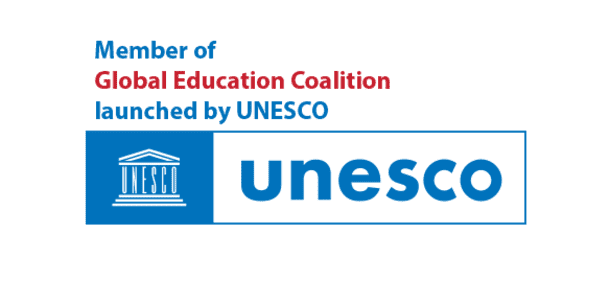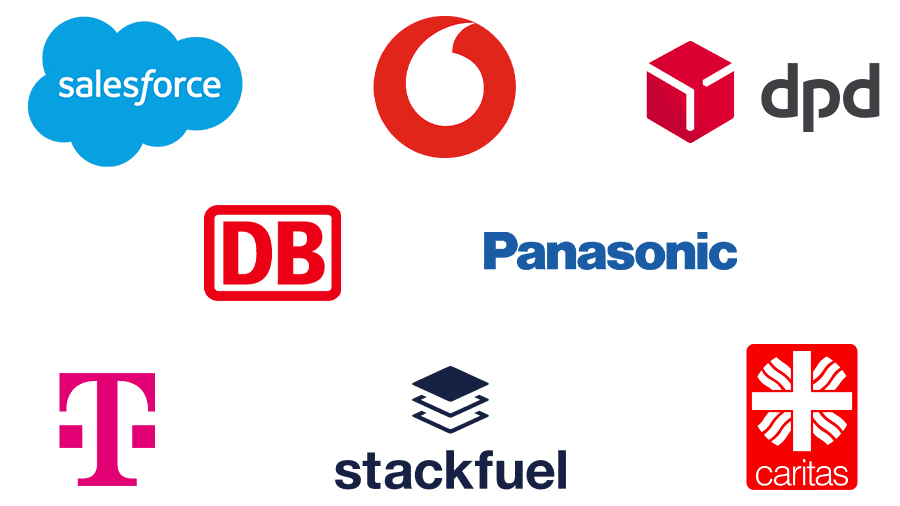
Productivity Masterclass
The Productivity Masterclass course is designed to help individuals enhance their productivity and efficiency in various aspects of their lives, including work, studies, and personal projects. This course goes beyond traditional time management techniques to cover a wide range of strategies, tools, and mindset shifts that contribute to peak performance and goal achievement.
Overview

Productivity Masterclass
Course Learning Objectives
Course Overview:
The Productivity Masterclass is a comprehensive online course designed to help individuals boost their productivity, prioritize tasks effectively, and manage their time wisely. The course covers essential skills and strategies for achieving maximum productivity, including goal-setting, time management, prioritization, task delegation, and stress management.
Course Learning Outcomes (CLOs):
CLO 1: Identify and prioritize personal and professional goals
Students will learn how to set clear goals, identify priorities, and create a roadmap for achieving success.
CLO 2: Apply effective time management strategies
Students will learn how to prioritize tasks, manage distractions, and optimize their daily routine.
CLO 3: Develop effective task management skills
Students will learn how to break down complex tasks into manageable chunks, delegate tasks effectively, and use tools and technology to stay organized.
CLO 4: Manage stress and maintain motivation
Students will learn how to recognize stress triggers, develop stress-reducing techniques, and maintain motivation and enthusiasm.
Specific Learning Outcomes (SLOs):
Module 1: Setting the Foundation
SLO 1.1: Identify personal and professional goals using the SMART goal framework.
SLO 1.2: Create a personal vision board to clarify goals and priorities.
Module 2: Time Management Fundamentals
SLO 2.1: Identify time-wasting activities and develop strategies to minimize distractions.
SLO 2.2: Prioritize tasks using the Eisenhower Matrix.
Module 3: Task Management Strategies
SLO 3.1: Break down complex tasks into smaller, manageable chunks.
SLO 3.2: Develop a task list using a project management tool (e.g., Trello, Asana).
Module 4: Stress Management and Motivation
SLO 4.1: Recognize stress triggers and develop a stress-reducing plan.
SLO 4.2: Create a motivational routine to maintain enthusiasm and momentum.
By the end of this course, students will be equipped with the skills and strategies needed to boost their productivity, prioritize tasks effectively, and achieve their goals.

Benefits
With AI, the world is your oyster! It is an emerging field, rapidly growing, ever evolving and watched with a keen eye by industries and markets globally. There are many benefits to an education in AI:
In demand Career
With a Bachelor in artificial intelligence you are equipped with in-demand skills in the rapidly growing field of AI. Knowledge of developing AI systems, data analysis and AI techniques makes you valuable across industries, right from healthcare, finance, tech and more. This degree prepares you for career that has multiple options for diversification. AI professionals include AI engineers, data scientists, machine learning specialists, AI consultants, researchers and more. AI is transformative technology that is revolutionising the world. With an education background in AI, you are set up in an in-demand career field with an exciting future ahead!
Innovation and advancement
Applied AI is all about finding solutions and using AI systems to make life simpler. Applied AI draws on its solid foundation in Computer Science to analyse and provide solutions for real world challenges. You are prepared to address complex problems and contribute meaningfully in domains like healthcare diagnostics, fraud detection, autonomous vehicles, personalised recommendations and more. Being able to apply AI techniques for solving tasks makes for an extremely rewarding and impactful job role!
Solving real world problems
AI aims to constantly bridge the gap between natural intelligence and machine learning - it is a field of cutting edge research, innovation and advancing technology. This makes it ever evolving, with new algorithms, models and techniques being developed. By studying AI at an undergraduate level, you gain a strong foundation in AI fundamentals that help you better understand the latest advancements. You step into a career that empowers you to push the boundaries of AI, contribute to research and development and drive innovation in the field.
100% International
Study at your own pace from anywhere in the world
Recommended by 96% of our graduates
According to our latest alumni survey
50,000+ students
enrolled in Germany’s largest university
Study contents
Contents
1. Introduction to Productivity
Definition and Importance
What is productivity?
Benefits of being productive in personal and professional life
Common Productivity Myths
Debunking misconceptions about productivity
2. Understanding Your Current Productivity
Self-Assessment
Identifying productivity strengths and weaknesses
Common productivity pitfalls
Time Tracking
Techniques for tracking how time is spent
Tools and apps for time tracking
3. Goal Setting and Planning
SMART Goals
Setting Specific, Measurable, Achievable, Relevant, Time-bound goals
Long-term vs. Short-term Goals
Aligning daily tasks with long-term objectives
Action Plans
Breaking down goals into actionable steps
4. Prioritization Techniques
Eisenhower Matrix
Prioritizing tasks based on urgency and importance
ABC Method
Categorizing tasks by priority level
The Ivy Lee Method
Daily prioritization of the most important tasks
5. Time Management Strategies
Time Blocking
Allocating specific blocks of time for different activities
The Pomodoro Technique
Using timed work sessions and breaks to maintain focus
The 80/20 Rule (Pareto Principle)
Focusing on tasks that yield the most significant results
6. Task Management Tools and Techniques
To-Do Lists
Creating effective to-do lists
Digital vs. paper-based lists
Task Batching
Grouping similar tasks to improve efficiency
Kanban Boards
Visual task management using boards and cards (e.g., Trello)
7. Overcoming Procrastination
Understanding Procrastination
Psychological reasons behind procrastination
Techniques to Overcome Procrastination
Breaking tasks into smaller steps
Setting deadlines and accountability measures
Using the Two-Minute Rule
8. Managing Distractions
Identifying Distractions
Common sources of distractions (digital, environmental, personal)
Techniques to Minimize Distractions
Creating a focused work environment
Using tools to block digital distractions
Setting boundaries with others
9. Enhancing Focus and Concentration
Mindfulness and Meditation
Techniques for improving focus
Incorporating mindfulness practices into daily routine
Physical and Mental Well-being
The impact of sleep, nutrition, and exercise on productivity
Break Management
Taking effective breaks to maintain high levels of focus
10. Work-Life Balance
Importance of Work-Life Balance
Benefits for productivity and overall well-being
Techniques to Achieve Balance
Setting boundaries between work and personal life
Scheduling downtime and relaxation
Delegating and saying no
11. Continuous Improvement and Reflection
Regular Review
Assessing progress towards goals
Adjusting plans and strategies based on what works
Feedback and Adaptation
Seeking feedback from peers and mentors
Being open to change and continuous learning
12. Productivity Tools and Resources
Digital Tools
Productivity apps (e.g., Todoist, Trello, Asana, Evernote)
Time management apps (e.g., RescueTime, Toggl)
Books and Articles
Recommended reading for deeper insights into productivity
Online Courses and Workshops
Opportunities for further learning
13. Creating a Personal Productivity System
Customizing Techniques
Tailoring productivity strategies to fit personal needs
Building Habits
Establishing and maintaining productive habits
Evaluating and Refining
Regularly assessing and improving the personal productivity system
14. Networking and Community Support
Productivity Communities
Joining groups and forums for shared tips and experiences
Accountability Partners
Finding a productivity buddy to stay accountable
Admission
Admission Criteria
1. Course Overview
Course Title: Productivity Masterclass
Course Description:
This masterclass offers comprehensive strategies to boost productivity in personal and professional life. Topics include goal setting, time management, task prioritization, overcoming procrastination, and maintaining work-life balance.
Target Audience:
Professionals, students, entrepreneurs, and anyone looking to enhance their productivity.
Course Duration:
Specify the length (e.g., 6 weeks, 12 sessions).
Course Format:
Online or in-person
Live or self-paced
Combination of lectures, hands-on exercises, and assignments
2. Admission Requirements
Prerequisites:
None; open to all skill levels.
Technical Requirements:
For online courses: A computer with internet access, and possibly specific software or apps recommended for the course.
3. Enrollment Process
Application Form:
Collect basic information (name, contact details, background, goals for the course).
Application Deadline:
Enrollment Confirmation:
Send confirmation emails upon successful enrollment, providing course details and schedule.
Careers
Career Path
Mastering productivity techniques can significantly enhance career opportunities across various fields. Here are some careers where strong productivity skills are particularly valuable:
1. Project Manager
Responsibilities:
Planning, executing, and closing projects
Managing timelines, budgets, and resources
Ensuring projects are completed on time and within scope
Skills:
Efficient scheduling and task management
Delegation and team coordination
Risk management
2. Executive Assistant
Responsibilities:
Managing the executive’s schedule and appointments
Coordinating meetings and events
Handling administrative tasks efficiently
Student reviews
Coming Soon.
Tuition fees
All our study programmes include the following benefits
- Teaching and study material
- Marking of your end-of-module exams
- Monthly live and recorded tutorials
- Use of the online campus
- Individual study coaching
- Online exams
- Career coaching
- Learn English for free
Our global recognition

IU is recognised by WES Canada and U.S., which means your degree can be converted to points in the local system for purposes of immigration, work, or studies.

As the first EU institution in UNESCO's Global Education Coalition, IU is committed to ensuring accessible quality education to students in crisis worldwide through free online micro-credentials.
Our company partners

For over 20 years, IU has established partnerships with leading global companies. This offers you the chance to gain firsthand experience through internships and projects and allow us to adapt our learning content to the ever-evolving needs of the labour market. You'll benefit from an education designed to bridge the gap between theory and real-world practice, ensuring your readiness for your future career.
Recognition
Recognition of previous achievements
Have you already completed a training course, studied at a university or gained work experience? Have you completed a course or a learning path through EPIBM LinkedIn Learning, and earned a certificate? Then you have the opportunity to get your previous achievements recognised, and complete your studies at EPIBM sooner.

Save time:
Skip individual modules or whole semesters!
Even before you apply for a study programme, we’ll gladly check whether we can take your previous achievements into account: 100% online, no strings attached. Simply fill in our recognition application form, which you can find under the content section of each study programme's webpage, and upload it via our upload section. You can also e-mail it to us, or send it via post.
Send an email to [email protected] to find out which previous achievements you can get recognised. You can get your previous achievements recognised during your studies.
Recognition files
Autonomous vehicles developer
With AI, the world is your oyster! It is an emerging field, rapidly growing, ever evolving and watched with a keen eye by industries and markets globally. There are many benefits to an education in AI:
That’s why after graduating, you’ll be able to apply your professional skills and knowledge, and work for development teams at any sector you find appealing.


Augmented reality (AR/VR) developer
Virtual (or augmented) reality isn’t all just fun and games, as great and enjoyable as that aspect is. It can also be used for groundbreaking social and psychological research, defensive purposes and therapy.
With an Applied Artificial Intelligence degree from IU University of Applied Sciences, you can take part in this vital field of technological development, and work on a wide variety of interesting projects.
Change what the world thinks about the possibilities that AI offers, and make a real difference in people’s lives, while enjoying every step of the process.
F.A.Q
Frequently Asked Questions
You might also be interested in these study programmes
Accredited and certified













